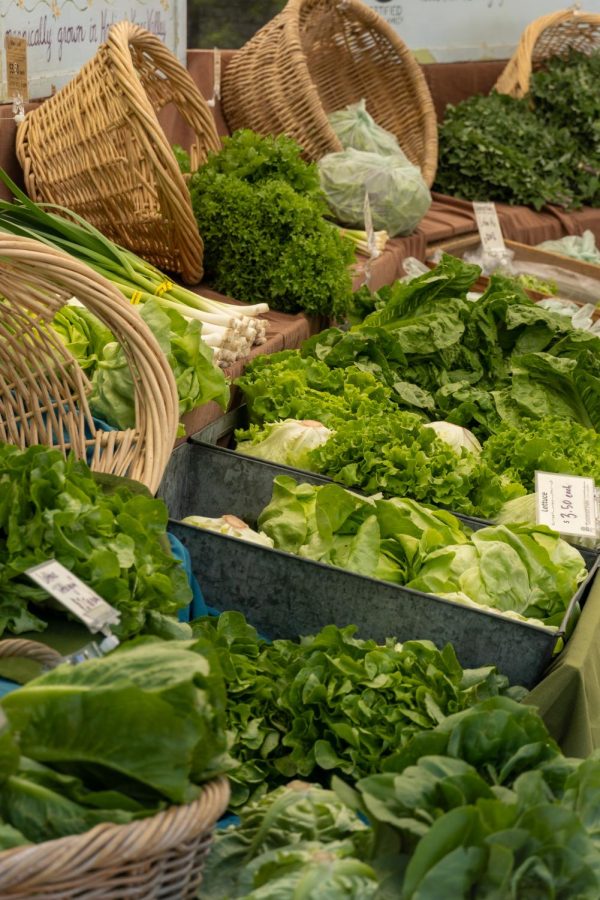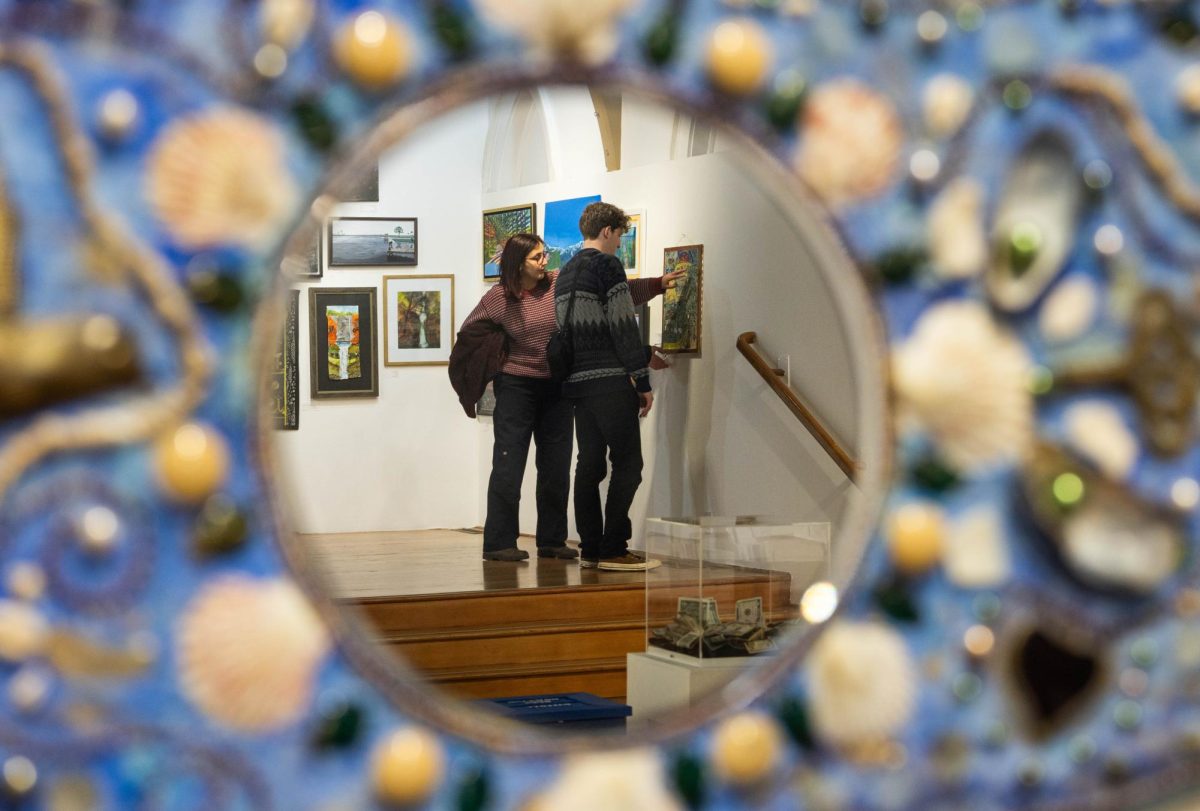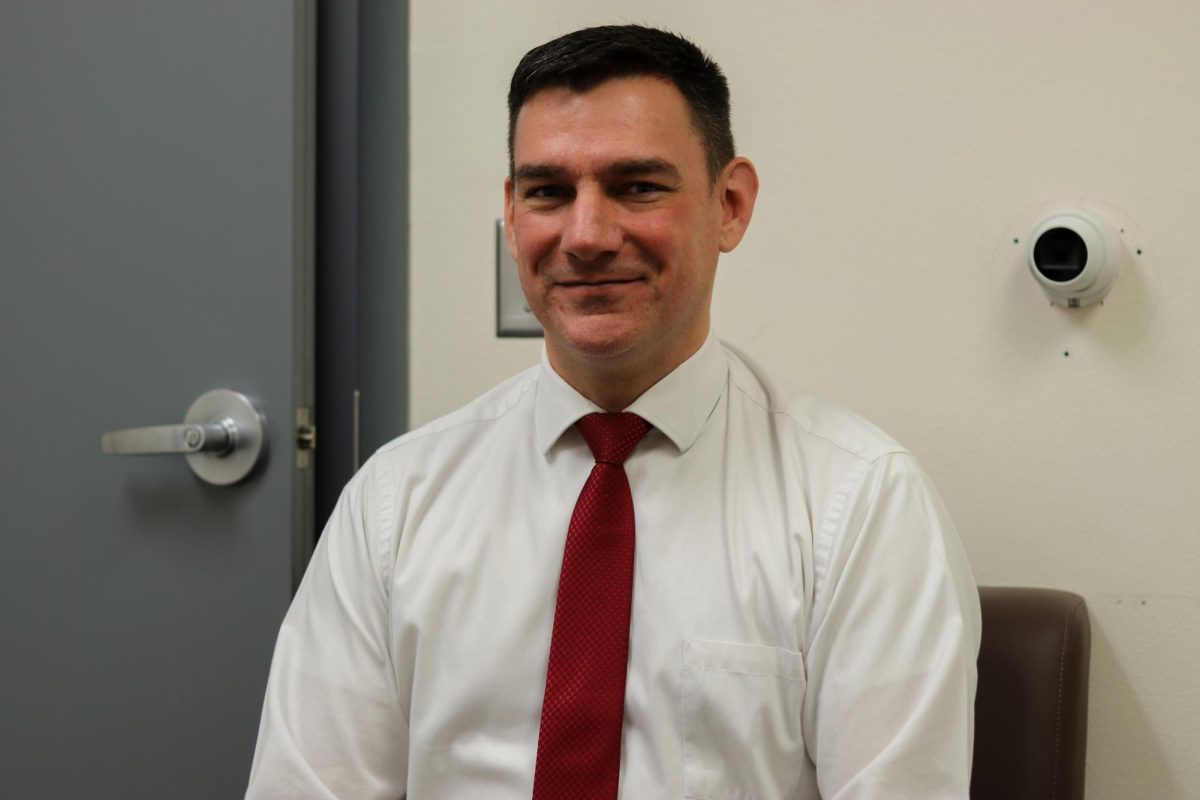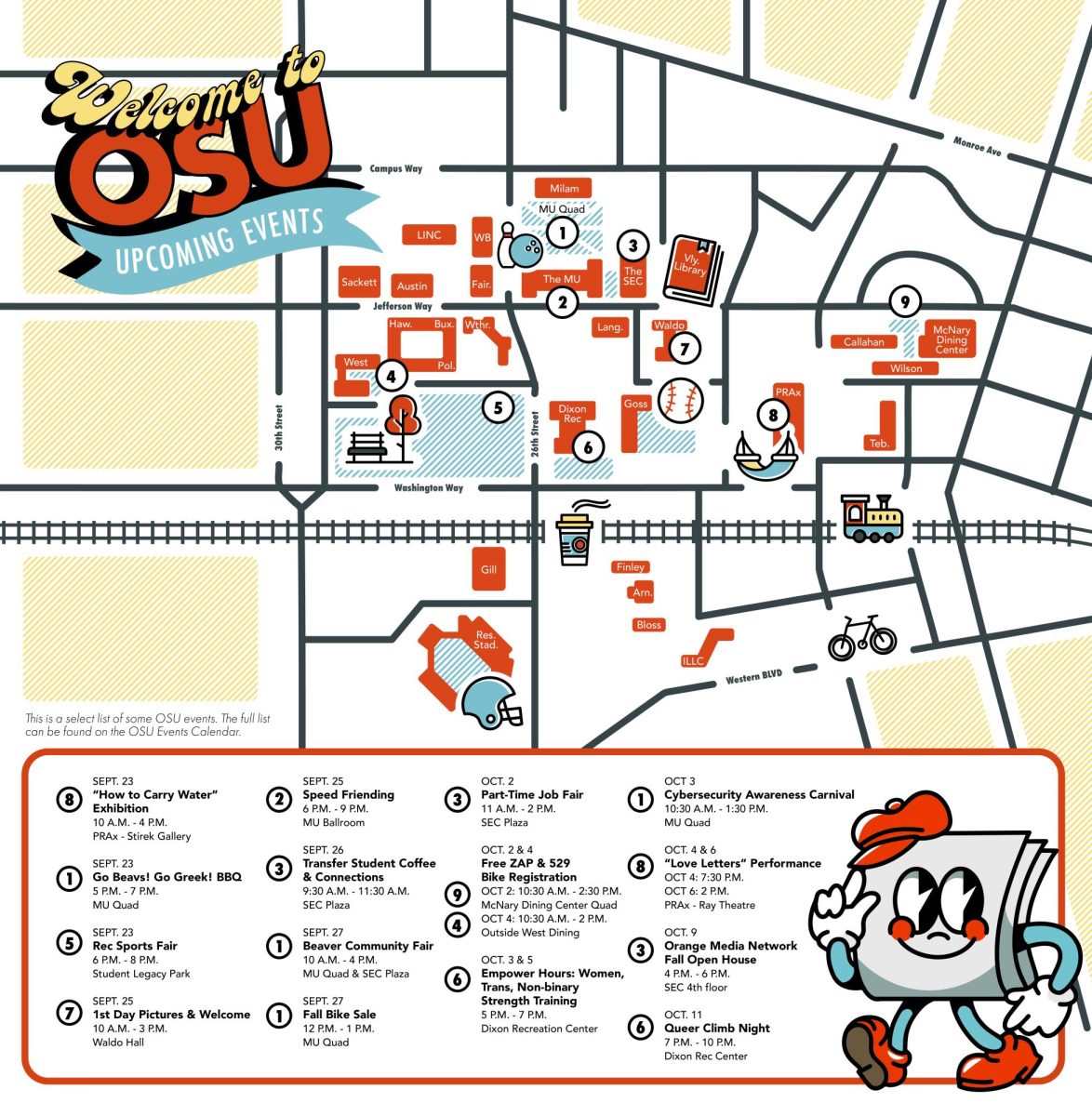Half-closed Eco2Go containers of leftover food often greeted Ella Johansen, an officer for the Waste Watchers Sustainability Club, in their time working at a residence hall, the accumulated mass; a biohazardous home for anaerobic bacteria that eat away at the plastic.
“Every time I return my Eco2Go, there’s only a very small percentage of them that are empty, clean, open and dry, which is the proper way,” Johansen said.
However, composting initiatives and training opportunities can help educate students on proper etiquette for these Eco2Go containers and reducing food waste.
Student clubs and departments have been hosting composting at various buildings, including Austin, Burton and Wilkinson halls. Waste Watchers Sustainability Club will also be servicing compost in the library starting again in the fall.
Arnold Dining Center will also provide a consistent place for students to compost while other locations might have changes, according to Kaylee Smith, the Waste Watchers advisor and administrative program specialist for Materials Management.
Material Management is the team that is primarily responsible for handling the end-of-life stage of material resources on campus. They service recycling and compost, handle surplus property and manage Central Lost and Found.
According to Smith, composting isn’t necessarily about food waste, but about diverting waste from the landfill, and what’s more important is to not waste food in the first place.
“It’s more about educating people on how to make the right decision first, and that can be through engaging things like compost that are a little bit more accessible,” Smith said.
One way to learn more about reducing food waste, along with other forms of waste reduction, is offered at Waste Watchers club meetings, according to Smith. Members are taught how to assess food waste and are provided trainings, among other things.
Material Management and Waste Watchers will both offer training throughout the academic year about food waste prevention.
According to Smith, the training goes over how to reduce food waste and its importance, such as the proper ways to store and preserve food, read labels, how to plan means to make the most of ingredients, how to buy the amount you need, and the environmental and social impacts of food systems.
The trainings can also cover how composting works in Corvallis, how OSU is working toward food waste reduction and diversion and how students can get more involved.
“That takes some preparation but also takes some education on how to do that because I mean, you have to take into account the fact that a lot of us are cooking for ourselves for the first time, you know, and so we kind of bring that aspect in,” Smith said. “We’re trying to… making sure that you’re getting the most out of your groceries especially if you’re a busy college student that might not be home all the time to keep an eye on everything and use it up.”
Waste Watchers will be posting updates on their club meetings on Instagram, along with tips on reducing food waste, according to Smith.
No Food Left Behind, a program of the Waste Prevention Action Team of the Corvallis Sustainability Coalition, in Corvallis provides printable resources and educational materials on how to reduce food waste, which can be found on their website. Similar materials are offered at Waste Watchers, which is inspired by No Food Left Behind in Corvallis.
According to Jaime Herrera, assistant director of dining and the executive chef of University Housing and Dining Services, dining-in is the most eco-friendly approach to eating on campus. If students use Eco2Go containers, Smith recommends returning them empty of any food scraps, if it’s “not too gross”, and opened, if possible.
“It’s really important to get that knowledge into people’s heads before they go out into the real world and make habits and live with other people and teach them how to preserve their food, because I think preservation and reuse and repair is not necessarily ingrained in our culture anymore,” Smith said.
To learn more about Waste Watchers on campus, click here.


















































































![Newspaper clipping from February 25, 1970 in the Daily Barometer showing an article written by Bob Allen, past Barometer Editor. This article was written to spotlight both the student body’s lack of participation with student government at the time in conjunction with their class representatives response. [It’s important to note ASOSU was not structured identically to today’s standards, likely having a president on behalf of each class work together as one entity as opposed to one president representing all classes.]](https://dailybaro.orangemedianetwork.com/wp-content/uploads/2025/03/Screenshot-2025-03-12-1.00.42-PM-e1741811160853.png)





























